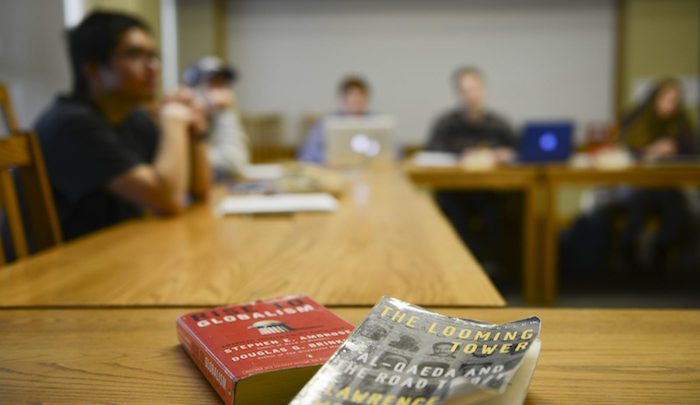
We can learn a lot by exploring the signature pedagogies of the study and praxis of International Relations and by examining how these signature pedagogies improve teaching and learning. Signature pedagogies, according to Shulman, are types of teaching that organize the fundamental ways of educating future practitioners, and are used to transfer skills of how to think, to perform and to act with integrity in their professional work. In other words signature pedagogies are less concerned with what content we teach but how we teach and impart knowledge.
Signature pedagogies are discipline specific yet share three key characteristics. First, they have a surface structure which entails the concrete acts of teaching and learning. Second, they are based in a deep structure of assumptions about how best to impart a certain canon of knowledge. Third, they have an implicit structure, which is related to the moral values and beliefs about professional attitudes and dispositions.
Moreover, signature pedagogies share a set of common features. First, they embody and demarcate teaching frameworks that are persuasive and routinized. Routines, of course, are not without problems; yet enable a focus on complex subject matters, which, in turn, develop habits of mind around various affective, cognitive and psychomotor learning. Second, they involve student performance; emphasizing their role as visible, active and accountable learners. Finally, signature pedagogies are pedagogies of uncertainty; rendering the classroom a space that may be unpredictable and surprising. This latter aspect raises the emotional stakes for both the teacher and learner, leading to the need for teachers to balance her teaching to decrease anxiety and enhance learning outcomes.
What are the concrete acts of teaching and learning International Relations? What are the assumptions that we impart? Are these assumptions based on how we ourselves learned the discipline? What values and beliefs about professional attitudes and dispositions do we foster?
Answers to these questions will undoubtedly vary it seems clear however that we often model our teaching around the concrete act of organizing our syllabus around the canonical texts of the discipline. Indeed is there an introductory class to IR that does not talk about Waltz and anarchy, about E.H Carr and the twenty-year crisis, about Kant and the democratic peace? The answer is likely no. Implicit in these ways of teaching we foster a set of assumptions which relate both to the praxis of what happens in the world of politics and how we make sense of that world through theoretical approaches. These assumptions include among others that there are certain actors in International Relations, which we treat of as central: states. We assume that these states behave in a certain way and foster a certain type of relation with each other and vis-à-vis other actors. In fact, we often center classroom debates by mapping theoretical assumptions onto particular cases studies: the Concert of Europe, the Cold War, Globalization, and Decolonization to name a few. Yet, again the discipline of IR has also begun to view other types of actors as both interesting and important.
It is here that much is happening in our discipline that requires us to evaluate and reflect on the beliefs we have about International Relations as a profession. This is why I incorporate not only discussions on states in my teaching but broaden the view in light of other interesting actors active in the realm of world politics: the role of non-state actors, epistemic communities, citizen and interest groups, corporate as well as criminal networks to name a few. In this way students are equipped to engage with the material not only in light of empirical realities but to reflect on the ‘state’ of our theories and their utility. By broadening the signature pedagogies along these lines of inquiry students begin to engage with the implicit structure of learning IR. It is here that I have taken many cues from my students who keep pushing me to review my own teaching practice as an iterative process.
Further Reading on E-International Relations
- Teaching International Relations as a Liberal Art
- The Evolution of International Relations in France
- Let’s Talk: Transformative Leadership and International Relations
- Incorporating Race into Introductory International Relations Courses
- Working with and Supporting Teaching Assistants
- New Book – Signature Pedagogies in International Relations